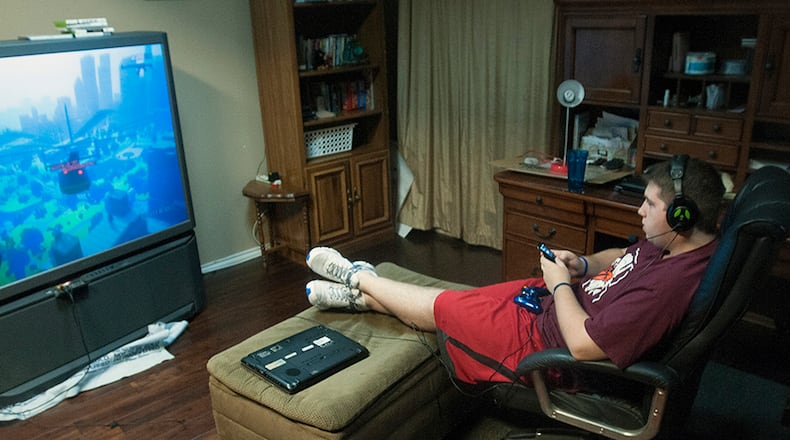At Thursday's Georgia Partnership for Excellence in Education forum, the Federal Reserve's Dr. David Altig made a surprising observation about those unambitious young men playing video games in their parents' basements rather than climbing the corporate ladder -- or any ladder.
On happiness scales, Altig said those young men are "ecstatic." The reason: The cost of what they love to do has become less and less expensive.
Video gaming systems have become much more affordable, which is good news for these ardent young fans. "They are not going to work because they have really good opportunities for stuff they really want to do for cheap," Altig said.
"Do you know who is unhappy? Their parents," said Altig, executive vice president and director of research at the Federal Reserve Bank of Atlanta.
After I tweeted Altig's comments, I heard from several people about how their nephews, sons or grandsons were among those young men who retreat to the basement, den or bedroom to blissfully play hours of video games.
Is that so bad? Based on all the Facebook confessions, half of America binge-watches new TV shows on Netflix for six-hour stretches. And it seems many baby boomer woman are scheduling their Thanksgiving vacations around Friday's premiere of "Gilmore Girls: A Year in the Life."
In one of my discussions this weekend with a self-admitted video game addict, a newly married young man pointed out his gaming habit is not as expensive as his wife's affinity for antiques. Her Saturday forays to the antique shops in Madison or Marietta cost them hundreds of dollars, while his video game marathons cost them nothing, he noted.
Does it makes sense for schools to capitalize on this video game fascination? Rather than lamenting young men's devotion to Pokemon Go or Doom, should we figure out how to better deliver instruction via gaming formats?
Many schools are already incorporating gaming into their lesson plans, although the research cannot tell us yet about the long-term impact on learning. There is a good summation of the research in this Scientific American article, which notes:
Perhaps the biggest impact of video games will be on students who have not responded as well to traditional teaching methods. Nearly half of the teachers surveyed say it is the low-performing students who generally benefit from the use of games, and more than half believe games have the ability to motivate struggling and special education students.
About the Author
Keep Reading
The Latest
Featured



